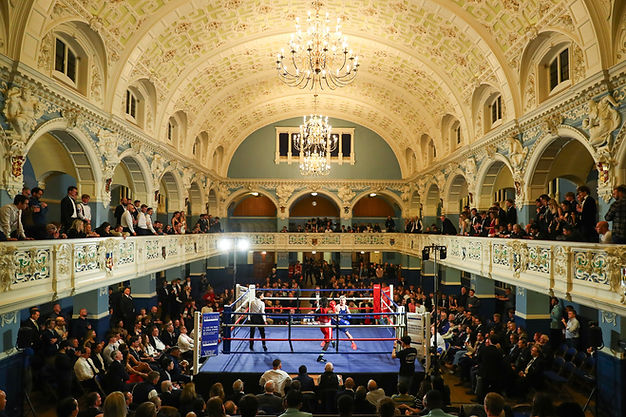
WELCOME
Oxford University Amateur Boxing Club is one of the oldest boxing clubs in the UK, founded in 1881. Each year the club members train and compete in a number of boxing shows and events, which culminate in our annual Varsity match against Cambridge.
To find out more about how to become a member, click the link below.

FAQs
It can be intimidating joining a new club, so hopefully, we can answer most questions you might have below. We welcome both student and non-student members to train with us.
If you can't find your question below, feel free to get in contact with a member of the committee here.
How do I start?
How do I start?
How do I start?
If you are considering joining our club, a great option is to attend a taster session. You can register to attend one here until until Sunday the 26th of October. After this, from Monday 27th October, anyone that wishes to attend club sessions will need to purchase a club membership.
I've never boxed before, can I still join?
I've never boxed before can I still join?
I've never boxed before, can I still join?
I've never boxed before, can I still join?
Yes! Many of our members had never boxed before they joined the club, so we are well set up for complete beginners. The club welcomes everyone, whether you just want to keep fit or you want to train with an aim to spar and compete.
How must does it cost to train with OUABC?
How must does it cost to train with OUABC?
How much does it cost to train?
Attending a taster session is completely free so that you can get a feel for the club. If you decide to continue training with us, we ask that you pay our subscription fees, which you can see here.
What do I need to bring with me to training?
What do I need to bring with me to training?
What do I need to bring to training?
Bring a skipping rope, hand wraps and water. Gloves can be borrowed, but if you start coming frequently you may also wish to invest in a pair of bag gloves. We recommend 14oz for men, 12oz for women.
What is a typical session like?
What is a typical session like?
What is a typical session like?
A typical session will consist of: a warm-up of skipping and bodyweight exercises, shadow boxing, technique work, bag work, bodyweight circuits e.g. squats, press-ups, burpees.
For the more experienced boxers, sparring and pad work will be included in training. Squad members have further sessions which include sparring and strength work.
I'm not sure I want to spar, do I have to?
I'm not sure I want to spar, do I have to?
I'm not sure I want to spar, do I have to?
I'm not sure I want to spar, do I have to?
Don't worry! You are not going to be thrown into a competitive fighting environment from the start. Sparring will only take place when the captain and coaches feel you are ready, and even then only if you want to.
How do I get invited to squad training?
How do I get invited to squad training?
How do I get invited to squad training?
The short answer is: a lot of hard work. Despite there being large numbers of boxers in the gym, the coaches and committee are extremely vigilant and can spot those who are turning up to sessions and those who are committed in training. No matter your boxing ability, dedication to sessions is important. A good way to impress is to turn up to morning fitness sessions.